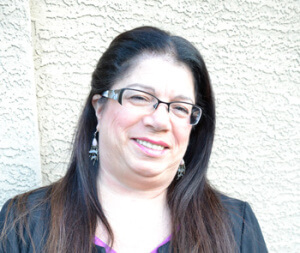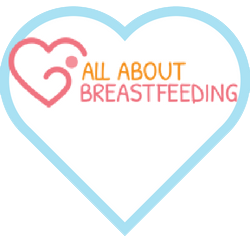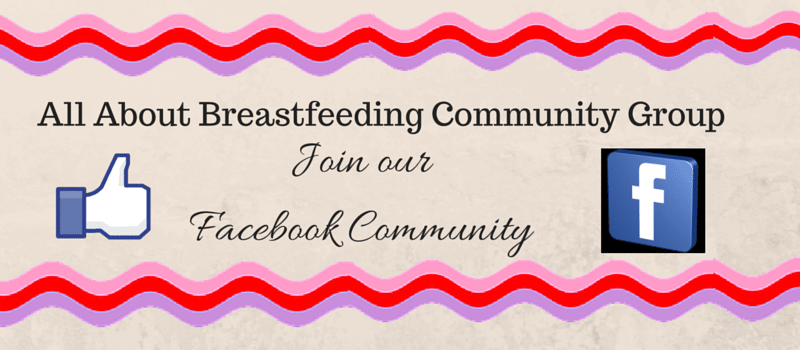Today’s Just Lori show, like so many of my other Just Lori shows, are fueled by my daily work as an IBCLC and what I see happening in real life, in real homes, all over the world.
Yes, my home base is currently in Arizona. However, I do work with mothers all over the world. How does this happen? Well, Since I have a podcast that is listened to people all around the globe and since I have an online breastfeeding class that has students from all over the world in it and since I offer Skype consults which moms all over the world take advantage of virtual consults, I get to see and learn about the lives of breastfeeding families not just in Arizona, but all around the world.</pWhen I have something stupid happen twice in one week, I get a bit crazy, need to talk about it, decide to do a show on it.. and that is how I get it out of my system. Otherwise, I don’t know what I would do with all this anger and frustration I feel at times or what I would do without the ability to educate you about different ways to go around solving a problem. One that benefits and works towards meeting your goals and not someone else’s.,,, like your providers or a family members goals.
What happened this week is a problem I see quite often. It happened with one of my students online and it just happened today when I did a home visit to a family in the suburbs of Phoenix, AZ.
The stupid thing that happened twice? A mother being told that her baby is starving and she would need to switch from breastfeeding to formula feeding. Oh wait a minute, excuse me, one of the families were told that they would allow mom to breastfeed for 10 minutes on each side and then give 2 oz of formula. The other family, was just blatantly told – you are starving your baby and you do not have enough milk and so sorry, but you need to give your baby formula… at least until we see your baby put the weight back on and then we will decide about breastfeeding again.
We will decide about breastfeeding again?
Whose baby is this anyway?
Give 2 oz of formula after every breastfeeding? There is so much wrong with this advise, but
Before we go any further I would like to thank all healthcare providers who make it their business to educate themselves about breast-feeding and breast-feeding management I would like to thank all healthcare providers who recognize that they may not be able to help a breastfeeding mother Because they acknowledge that they either lack the time to do so or the knowledge to do so, however they excellently compensate for this by having a great referral source in their community for mothers. thank you to all of you.
My client Amanda was not so fortunate so Come along with me and learn from my lactation consult with Amanda
Let’s hang out in Amanda’s house for a while. She has a 15 day old baby who is 5 oz below birth weight. Now, considering the fact that her baby Erin should have been back to birth weight at 2 weeks old, her baby is about 5-6 oz less than what we would expect at 15 days old. Amanda’s pediatrician is correct in that her baby is below expected weight. However, she is slightly below and since she has been exclusively breastfeeding, this finding does not warrant an immediate stop breastfeeding and switch to formula care plan. I say this because only being 5 oz below expected weight tells me that she is getting a fairly good amount directly from the breast, which gives us the opening to evaluate breastfeeding and correct the problem, while continuing with breastfeeding. The need to supplement and what to supplement with, will be determined by the end of our consultation.
I can see that Erin has good output and appears to be well hydrated. Are there breastfeeding issues that need to be worked on… absolutely. However, she is definitely not starving her baby. Does she need to supplement with formula? Perhaps, but this was never evaluated at her pediatric office.
Let me explain what I mean when I say that the breastfeeding and the need to supplement with formula was not evaluated at her pediatric office visit.
There seems to be this belief system in that if a baby is losing weight or not gaining as expected, that the mother is not producing enough milk for her baby. Sure, this is sometimes an issue and it also is sometimes absolutely, hands down, NOT the issue.
As an IBCLC, who is a specialists in evaluating situations like this. What do I want to see happen? I want to take the opportunity to assess moms health history, her breast and nipple anatomy. I want to take the opportunity to assess her baby for structural issues, for oral motor function issues. I want to take the opportunity to assess position and latch as well as milk transfer. I also want to do a weighted feed, which basically means to weigh your baby before and after a feeding and see how much milk your baby has transferred. Now there is more to this, however, this covers the basics.
Doing just one of the above, all on its own, does not make a complete evaluation. In other words, just checking your babies intake during the feeding alone, does not tell us everything. Knowing your baby is latched on well does not tell us everything.
We need to take a good look at all the different angles to breastfeeding. Something we don’t really need to do anything when breastfeeding is going well. However, when it is not going well, I become what I call… an investigative reporter. I am investigating all angles. I am asking a lot of questions just as any good reporter will do.
It is only once all this has been done, that I can advise you on what to do next, on what your babies feeding plan should be. So, why did Erins pediatrician make such a declarative statement without having done a full assessment? Well, wait a moment, let’s step back for a minute. You may be asking? Why am I assuming that her pediatrician did not provide a full assessment? Well, the investigative reporter in me asked Amanda one simple question? About how long did the Dr. spend with you and Erin. Her answer – about 15 minutes. Since my breastfeeding evaluation covers a full feeding and takes anywhere between 1-2 hours, I knew this could not have happened.
Let’s return to Amanda’s house. Well, I would actually love to return to her house. She lived about 15 minutes away from suburbia and her home was nestled in the middle of the desert where homes are built about a half a mile away. Wildlife in this area is out in the open for all to enjoy. Her neighbors have horses and trailers and lots of dirt and many cacti in their front and backyards. Have I mentioned how much I enjoy doing home visits in the beautiful Arizona desert? Getting out of the office and into the sun makes me a very happy lactation consultant.
Okay, so inside Amanda’s house was a very quiet home. She had no relatives visiting and this was her first baby. Her partner Cathy greeted me outside and waved me on in. I shook hands with Amanda as I introduced myself and I noticed that she seemed happy and well rested. Then I asked her how she was doing today. She started to tell me her tale of woe and about 2 minutes into her story tears started to well up as she uttered the words – My Doctor made it sound like I was the worst mother in the whole world. If I need to give Erin formula I will, but I really don’t want to. And with that, Cathy grabbed some tissues, handed it to Amanda and said to me: And that’s why your here.
We went to her bedroom where she has found it most comfortable to breastfeed. I noted that she had a wonderful set up with a fully stocked changing station, her pump, a few bottles of water and I could see a granola bar on her nightstand. I listened as Amanda settled herself on her bed, held her baby on her chest and filled me on all the details of what has happened with breastfeeding since Erin was born. I love hearing mother’s share their stories as it gives me great insight as to what happened and how they felt about it. I use this opportunity to go down my fact finding mission without moms feeling like they are sitting on the witness stand under heavy Q & A questioning.
As I went through my whole assessment and did my investigate reporter thing… several things became quite clear to me.
Since she had been pumping the last 24 hours, I knew Amanda had a great supply as she was pumping about 3-4 oz each time she pumped. When I asked her why she started pumping yesterday, she said that a friend of hers told her that perhaps she was not making enough milk and she should start pumping.
I am very grateful for her friend because I find that many moms who are told to supplement, are not told to keep up a regular pumping schedule and to not do so will cause great harm to the milk supply and perhaps cause extreme breast engorgement and other problems. I asked how frequently and for how long she pumped each time and based on her responses, I confirmed she had a good supply which should be meeting her babies needs at this time. I asked how often her baby was eating, if she was waiting for her baby to wake up or had she been checking the clock and waking her baby up after a specific period of time. Now that her baby was weighed and I had some preliminary information, like Amanda’s breast and nipple anatomy and assessed that her baby Erin had no specific issues that would impact breastfeeding, we went to the next step, which was for her to breastfeed Erin.
The latch was slightly off, but honestly not much to write home about. I could make a few adjustments but that would be more to satisfy this thing that some lactation consultants have about moms needing to “do it the right way.” I have long since gotten over that one, as I have learned that moms and babies don’t have to have this 100% “perfect” latch in order for breastfeeding to go well.
The real gold, the real story for me was in the “watching her breastfeed her baby part.” Here I got to observe Erin feeding and I was able to ask more questions about feeding habits, why Amanda is going about certain things the way she is. I enjoy learning from moms how they started off breastfeeding, who helped them initially, what changes, if any they have made along the way and how they feel about breastfeeding.
The gold is also in listening and watching the partner’s responses and their behavior and what they have to say, as their baby is breastfeeding. Soooo much to learn from just observing and from getting the partner’s perspective.
Here are a few crucial pieces to this puzzle that I learned just by watching Amanda breastfeed and listening to her and Cathy describe the last 15 days. Each one has their own perspective and with some couples it seems like they have been living in 2 households. That was not the case with Cathy and Amanda, however, I did learn a few things.
#1 Amanda saw 3 lactation consultants during her 4 days hospital stay. She gave birth vaginally but because of a large weight loss and a diagnosis of jaundice for Erin, they stayed a few days longer than they might have otherwise needed to.
#2 Amanda also asked the advice of several pp nurses who took care of her.
#3 With 5 different people offering advice, Amanda became quite confused as to what she should do in some instances as the advice was quite inconsistent.
>#4 She did feel the lactation consultants were helpful, although she did recognize some of their information contradicted each other, and she didn’t know what to do about this. She did not see the lactation consults on Day 3 or on Day of discharge. Her pp nurse was in charge of discharge instructions and Amanda left the hospital with this basic breastfeeding advice:
Do not let your baby use you as a pacifier as you will never get any sleep.
Always feed from one side per feeding, so they get all the fatty hindmilk that helps them gain weight.
In 10-20 minutes your baby should be done breastfeeding, anything after that, they are just using you as a pacifier.
Your baby needs to eat every 3 hours. If she wakes up before 3 hours, hold her off until it is 3 hours. But also, Don’t let your baby sleep more than 3 hours.
Okay… so first let me say: That stupid darn pacifier advise.
If I did not know what I know, this advice sorta sounds reasonable to me as a first time mother. I mean, what do I know? But stupid advice it is.
I took the time to explain in detail what I thought about the advise she was given.
Why this advice was causing her baby to not gain as well.
What I feel she should do instead.
And I explained the rationale behind each one of my suggestions.
I gave both of them plenty of opportunity to ask all their questions.
It took longer than what I am going to do here, however, this is the gist of it all.
Purposefully offering one side only, purely for the hope that your baby gets all the fattier hindmilk may mean that your baby not be getting enough volume each feeding. Average newborns need both sides for most feedings. Not to say that a mom with an abundant supply and an efficient breastfeeder can do this and her baby will gain really well, however, this is not most mothers and newborns. And this clearly is not the case for Amanda. We did a weighted feed after one side and her 2 week old only transferred 37 mls which is not even 1 1/2 oz. But that’s okay, 37 mls is 37 mls. But, If this is all her baby gets each feeding on average, no wonder her baby is not gaining well. She is limiting her babies intake because she is paying attention to someone else’s rules and not paying attention to her babies cues.
The interesting thing to note here is: She didn’t want her baby to use her as a pacifier so she took her off after 20 minutes. But if her baby was unsettled, what did she do? She gave her a pacifier.
She was dutifully only offering one side per feeding and she was also dutifully taking her baby off the breast if 20 minutes had passed. Each time she sat down to breastfeed, she opened up an app that tracked feedings, timed the feedings and tracked output. She had a little alarm that would go off in 20 minutes. Little did Amanda know that this habit was contributing to poor weight gain. Her baby was not using her as a pacifier after 20 minutes. Her baby just was not done feeding.
Amanda also was waking her baby up every 3 hours. There were times when Erin would wake up on her own before 3 hours and she would hold her and rock her and sometimes give her a pacifier until it had been 3 hours. When I asked her why she was doing this, she said that during her hospital stay, Erin seemed to want to “snack” all day and she was told that by one of the nurses that if she lets her do that, she will never get her to learn how to sleep for longer periods of time.
These 3 pieces of advise,( offering one side per feeding, limiting time at breast til 20 minutes and only feeding her every 3 hours was causing major breastfeeding issues. On the one hand, if you did not know any better, did not understand the way breastfeeding works, I have to say it sounds reasonable and I can appreciate why mothers listen to this. Often as new mothers we feel inadequate and lack confidence in breastfeeding and so they follow the advice of so called experts. This all sounds reasonable to me.
But, I know better – if the so called experts do not really understand lactation, this form of breastfeeding mismanagement can cause a mom to have a low supply, a baby to have poor intake and a baby to have poor weight gain.
The last piece of advice she received – Wake your baby up if they are sleeping more than 3 hours. I want to know why? Why is this advice so prevalent? What happens after 3 hours? 3 1/2 hours? 4 hours? And what makes others so sure that the baby is ready to eat every 3 hours? Perhaps they are not hungry yet? If this is the case, you will likely have a poor feeding with a cranky, fussy baby who was sleeping well, who you pulled out of a deep sleep…..who is not really hungry or thirsty yet?
It seems to me that other people are deciding when Erin is hungry and when she is full. It seems to me that other people are deciding when she should be eating.
As I explained to Amanda – it is not so much the need to know and count how often your baby is eating as it is to know that your baby is having a good/full belly feedings? Now I know you might be thinking? Well, she can’t measure how much her baby takes per feeding, like we did during our consult, so how can she tell if her baby is having a good feeding? No one explains this to mothers. Sitting by her side and being their with Amanda for a full breastfeeding, I was able to teach her all she needed to know to help her decide if a feeding was a good one. A good feeding to me is where your hungry baby comes to the breast, begins feeding, settles into the feeding and in a relaxed and yet very productive manner shows excellent signs of milk transfer and of satiation when done. Amanda now had a checklist with everything we went through and she understood all of the information. This was helping to build her confidence in breastfeeding.
Once we weighed Erin after the second side, she showed an intake of 52 mls. This volume combined with the 37 mls from the other breast is a total of 89 mls. 90 is 3 oz. While not every baby will take the same amount at every feeding, this is an excellent feeding for her 2 week old baby. This also proves to Amanda the need to not limit Erin to 20 minutes, to not limit her to just one sided feedings. She can now clearly see that she has enough milk for her baby and her baby can get good milk transfer, but if she cuts her off at 20 minutes and only offers her one side per feeding, this is what the problem is.
Amanda and Cathy are not quite sure about my suggestion to follow baby led feedings, rather than parent led feedings. They still are concerned that if they don’t wake her up every 3 hours that she might not get enough. And I can appreciate that. That’s fine. They may need a little time to grow into this. The best I can do is offer my rationale behind my advise and parents get to choose how they go about it. I am glad though that they both did say they would not make her wait to eat if she woke up before 3 hours.
They are both happy to learn and truly understand why they don’t need to supplement breastfeeding with any bottles and certainly do not need to switch to formula.
Near the end of the consult, Amanda was pretty exhausted as we had been together for about 1 hour and 20 minutes already. There was lots of discussion, lots of education and I am sure she was ready for a nap and I was ready to go. She did ask me that one simple question though that many moms who I work with ask me:
Why is there such conflicting advise, such inconsistent advice and such poor advise out there about breastfeeding? And not by anyone off the street, but from Drs. and nurses and lactation consultants and friends who have breastfed? Amanda expressed her frustration by saying that had she not been given this bad advice, by her babies pediatrician, things could have gone much different.
I totally agree with Amanda. I have my theories about why this is such poor, what I call breastfeeding mismanagement out there. My short answer is that there is a lack of excellent breastfeeding education in medical and nursing school. I will tell you a BIG secret! It is very likely that your pediatrician only had 1-2 hours of breastfeeding education in all their 7 plus years of medical school and residency. YUP. I know this to be true as many have told me so. I have interviewed several physicians on this show and they have all told me so.
Your Online Breastfeeding Class
Learn how to breastfeed – Be comfortable. Be confident.
The learning continues well beyond the average breastfeeding basics class that is 60-90 minutes. In this class, we have over 15 hours of audio lessons, combined with many hours of videos to help support what you are learning. We cover breastfeeding and medication safety, what to do if your baby does not latch on, common breastfeeding challenges, tongue tie, premature babies, building a good supply, returning to work and pumping. Take a look at the list below and follow the link to the class page so you can see more specifics of what is covered. I want to ensure that we got you covered and that you have great support well beyond the newborn days.
- Using your pregnancy time to prepare for breastfeeding
- Tips on how to prepare your home for a newborn
- Specific details about the first 24 hours after birth.
- Exactly what to expect the first two weeks after birth
- What can you do if your baby is not latching on
- Common and not so common breastfeeding challenges
- What you can expect over the next few months
- Returning to work as a breastfeeding/pumping mom
- Pumping and storing your milk
- When to begin pumping and building your freezer stash
- How to make a smooth transition to postpartum life
- Lessons dedicated to partners and breastfeeding knowledge.
- Breastfeeding and the 1 year old
- Breastfeeding the toddler and beyond
- Tandem nursing
- Breastfeeding through a pregnancy
- Medication and mother’s milk
- Weaning
Once you register for the class, you have immediate access to:
- Audio Lessons
- Videos
- Educational handouts
- Helpful checklists
- Our “members only” group
- Weekly group LIVE Q&A sessions
Gain confidence in breastfeeding.
Expert advice from Lori J. Isenstadt, IBCLC who has over 25 years of experience in maternal health and lactation. I will help you navigate the ins and outs of breastfeeding.
Listen anywhere and anytime. Imagine not having to sit in a classroom or stare at a screen. You can learn all about breastfeeding while going for a walk, driving to work or running errands, traveling on a plane, train or bus. Because you can download the audios, learning is easy and convenient. Get ready to learn anytime whenever it’s convenient for you and your partner. You can be cooking dinner together and listening to the class. Perhaps relaxing together in the evening in your comfy clothes. You can learn together. Easy access to all class materials. Your class never expires. You’ll be able to listen and download the materials at your convenience.
You are not alone!
Once you are a student in the breastfeeding class, you have regular access to ongoing support for the whole time you are breastfeeding. You can have your questions answered by Lori J. Isenstadt, IBCLC, in our private group as well as our weekly live Q & A sessions. Just check out the Bonuses below to see how I provide you with ongoing support..
Exclusive Bonus #1
Immediate access to a private group for class students only. I will be answering your questions 5 days a week.
Exclusive Bonus #2
Invitation to join our weekly Q & A session with Lori and other students.
Exclusive Bonus #3
Need additional help? *25% discount off a private consult – for students only.
*If you are in the Phoenix metro area. use this link to schedule your Office or Home lactation consult.
*If you are out of the area, use this link to schedule a Skype call
Do you have a question about the class before you purchase? Send it to – aabreastfeeding@hotmail.com
 Register for the Breastfeeding class
Register for the Breastfeeding class
http://www.aabreastfeeding.com/audioclass
Additional ways to connect with me:
Like us on Facebook HERE:
http://bit.ly/2dNPlsC
Follow us on Twitter HERE:
@breastfeedingaz
http://bit.ly/2BfEIJ2
Follow us on Pinterest HERE:
https://www.pinterest.com/lorijisenstadt
Subscribe on iTunes the All About Breastfeeding show HERE:
https://apple.co/2FJGwsV
Lori J. Isenstadt, IBCLC
 Lori Jill Isenstadt, IBCLC is a huge breastfeeding supporter. She has spent much of her adult life working in the maternal health field. Once she became turned on to birth and became a childbirth educator, there was no stopping her love of working with families during their childbearing years. Lori became a Birth doula and a Postpartum doula and soon became a lactation consultant. She has been helping moms and babies with breastfeeding for over 25 years. Lori founded her private practice, All About Breastfeeding where she meets with moms one on one to help solve their breastfeeding challenges. She is an international speaker, book author and the host of the popular itunes podcast, All About Breastfeeding, the place where the girls hang out. You can reach Lori by email at: aabreastfeeding@hotmail.com or contact her via her website: allaboutbreastfeeding.biz/contact
Lori Jill Isenstadt, IBCLC is a huge breastfeeding supporter. She has spent much of her adult life working in the maternal health field. Once she became turned on to birth and became a childbirth educator, there was no stopping her love of working with families during their childbearing years. Lori became a Birth doula and a Postpartum doula and soon became a lactation consultant. She has been helping moms and babies with breastfeeding for over 25 years. Lori founded her private practice, All About Breastfeeding where she meets with moms one on one to help solve their breastfeeding challenges. She is an international speaker, book author and the host of the popular itunes podcast, All About Breastfeeding, the place where the girls hang out. You can reach Lori by email at: aabreastfeeding@hotmail.com or contact her via her website: allaboutbreastfeeding.biz/contact
your email address will not be published






